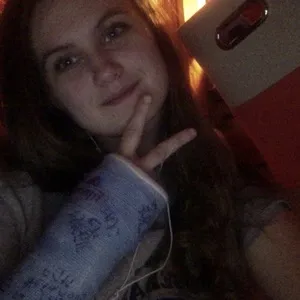Tap water is everywhere: it’s the water we shower in, water our plants with, and wash our hands with daily. Ever stick your head under the faucet of a sink to let some cool water pool into your mouth? Yet, a stigma over the cleanliness (and morality) of tap water has created wide distrust of tap water in favor of packaged bottled water.
In the 1975 film The Stepford Wives, Bobbie Markowitz insists that “there’s something in the water that turns us into house fraus,” referring to the weird activity in the town of Stepford.
The film wasn’t coming from nowhere with this statement. Since the 1940s, conspiracy theorists thought tap water attributes to governmental mind control due to the concentration of fluoride that induces brainwashing.
Not only that, but some people may prefer drinking bottled water because of the convenience and visible proof of cleanliness in the clear packaging. Who hasn’t come across a Pinterest blog swearing about the miracles water works, more specifically bottled water?
Yet tap water has consistently been proven to be both safe and beneficial to health in ways that bottled water simply cannot. Compared to bottled water, tap water has stricter regulations with government oversight. According to the Environmental Protection Agency (EPA), bottled water is monitored by the Food and Drug Administration, while EPA imposes thorough and strict inspection over the cleanliness of tap water.
The packaging on bottled water can also be misleading. Bottled water may have the privilege of claiming its source in pristine glaciers, springs, or mountains when there really are no regulations that require proof of its origin.
Notably, bottled water has led to recent ecological disasters like the California drought. Nestle’s excessive use of natural water for their bottles ended up draining over 36 million gallons of water in 2015 alone.
While bottled water may be more aesthetically appealing and convenient, tap water has lower levels of chemical contamination than some bottled waters. Stylish bottled water brands like Fiji, Voss, and Smartwater may claim to provide water in the purest form, but just like there aren’t any specific rules about labeling water’s source, purified water isn’t necessarily pure. The artesian water that costs up to three dollars at the supermarket probably tastes just the same as your tap water, too.
In some unfortunate circumstances, tap water can prove hazardous, as evident in situations like the one in Flint, Michigan. In scenarios where tap water cannot be used for health reasons, bottled water is the safest option. Extreme exceptions to tap water contamination depends on a variety of issues, spanning from sewage leaks to fertilizer runoffs to naturally occurring chemicals like radon and arsenic.
The global water crisis has over 1.8 billion people without access to clean drinking water. Not only that, but just your geological location can determine the quality of your tap water.
But we also can’t forget that water is essential to life even if it’s prepackaged or spilling from a faucet. Tap water provides health benefits and may be a more ethical choice compared to bottled water, but access to clean water, regardless if from a faucet or a bottle, is imperative.
While tap water in general is better than bottled water, investing in a water filter can be the best of both worlds. If you’re still on the edge about the cleanliness of tap water, the EPA compiles a Consumer Confidence Report detailing the quality of your local water every year.
All in all, it’s safe to relax a little when it comes to drinking hard water. Taking it from the tap may be more trustworthy than you think.


